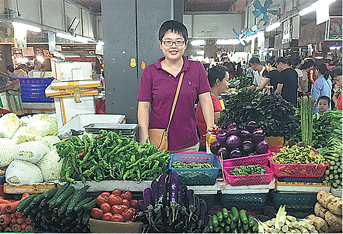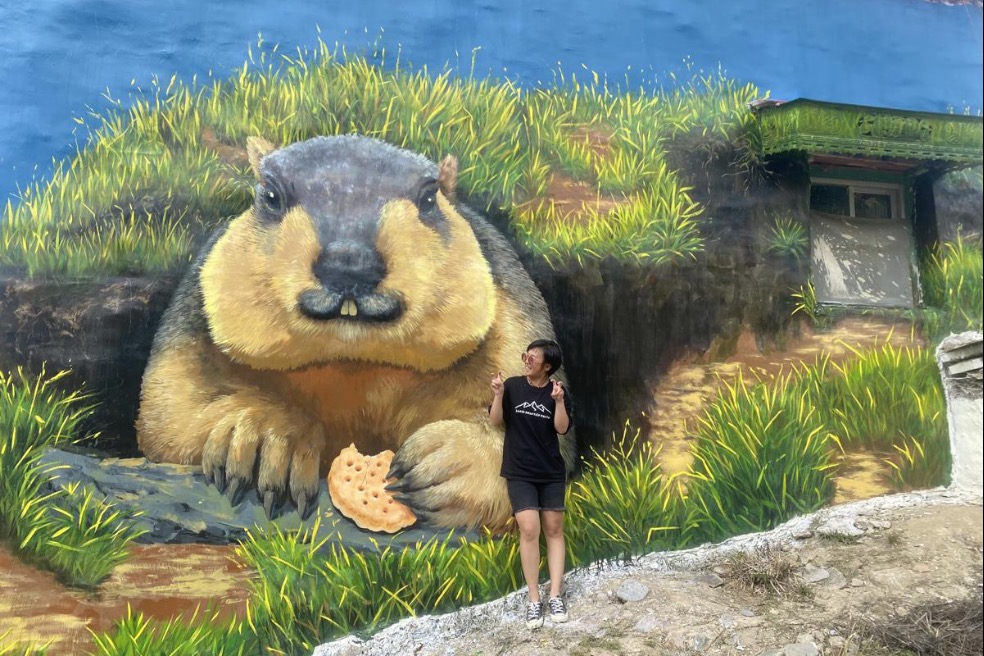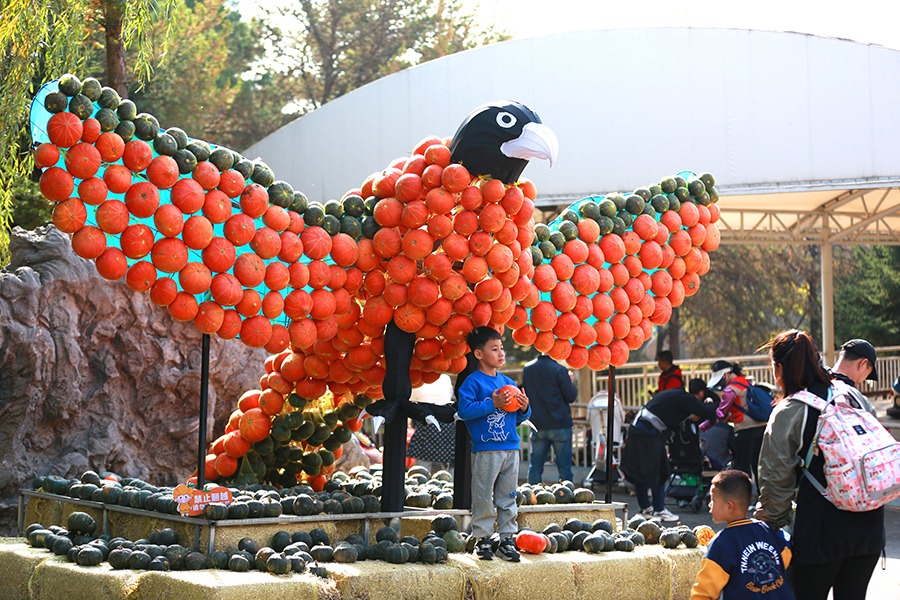Farmers' markets sow seeds for tourism boom


Classes launched
In the following years, He increasingly noticed the valuable mine of information to be found in these markets.
In 2018, she launched classes on regional differences and culture seen from the perspective of farmers' markets for students from primary to high school.
In addition to introducing the evolving history of the outlets, He has taken students to such markets in Chengdu, capital of Sichuan province, Hong Kong, and Shenzhen, Guangdong, to show them how the produce is arranged.
She plans to compile information on the markets for publication to enable more people to appreciate the attractions of these ventures.
An increasing number of Chinese travelers are experiencing the delights of farmers' markets.
Huang Linwu, who comes from Yunnan, often plans to allocate time to visit a farmers' market whenever he goes to a city for business or leisure. "Although logistics services are now well developed, and all farmers' markets nationwide may appear to offer a wide variety of products, there are still differences," Huang said.
For example, he found that scallions in Shandong's food markets were tastier than those from Yunnan. "Ours are a little spicy, while those from Shandong are sweet," he said.
He traces his love for food markets to his college years.
"In those days, whenever I had some money, I loved backpacking and traveling. Food markets were the first places I visited, as I got to see what the locals ate," Huang said.
Over the years, he has developed the view that food markets provide a valuable immersive travel experience. "Witnessing the lives of locals (at a food market) is the most beautiful part of a journey," he said.
Many food markets across the country have emerged as popular tourism destinations.
During the May Day holiday from April 29 to May 3, Badaju Food Market in an old city block in Zibo, Shandong, received more than 190,000 visitors in a single day, the market administration reported. Travelers lined up to get barbecue and other local snacks.
Since the barbecue craze swept Zibo earlier this year, the number of visitors to the market has grown more than tenfold, data from the Badaju Market Administration show.
The number of single-day visitors to Shuangta Food Market in Suzhou, Jiangsu province, has reached a high of 200,000 since renovation work was completed in late 2019.
Many young visitors are attracted by the venue's artistic typographical designs, elements of nostalgia, and crops symbolizing harvest time.
Yang Yanfeng, director of Beijing Union University's online tourism research center, said a food market is one of the liveliest places in a city. It represents local cultural heritage and the way of life, especially at the grassroots level.
"Tourism is becoming increasingly personalized and interest-oriented, and I believe that certain people are eager to visit attractions such as farmers' markets," Yang said.
He is impressed by Caoxian Fair in Caoxian county, Shandong, where visitors traditionally sample mutton soup.
- Beijing decreases water consumption in 2023
- Former senior legislator of Inner Mongolia arrested for suspected bribe-taking
- 15 jailed for building collapse in Central China
- China's former senior provincial legislator under probe
- China expels unlawful Japanese vessel from Diaoyu Dao waters
- Xi encourages students to actively engage in sci-tech innovation





































